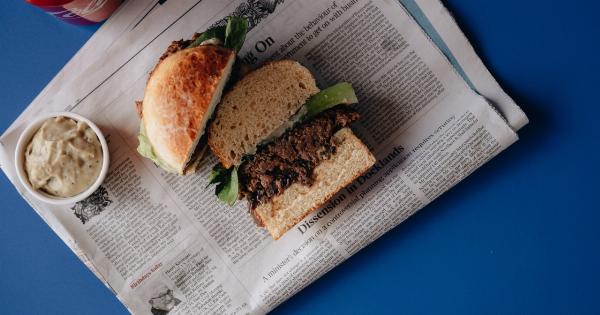Most diet plans will tell you to avoid eating at night if you want to lose weight. But what if we told you that you can eat all you want at night and still lose weight? It may sound too good to be true, but there is some science behind it.
The key is to choose the right foods and time your meals properly.
Intermittent Fasting
Intermittent fasting is a popular trend in the health and fitness world. It involves cycling between periods of eating and fasting. One popular method is the 16/8 diet, which involves fasting for 16 hours and eating during an 8-hour window.
Many people choose to have their eating window in the evening, which allows them to indulge in a larger meal and satisfy their hunger cravings.
The Role of Insulin
Insulin is a hormone that regulates your blood sugar levels. When you eat carbohydrates or sugar, insulin is released to help transport glucose to your cells for energy.
However, constant spikes in insulin can lead to weight gain, as excess glucose is stored as fat. Eating at night can actually be beneficial, as your body’s insulin sensitivity is enhanced during the evening hours. This means that your body is better equipped to use the glucose from your meals for energy, rather than storing it as fat.
Fiber and Protein
The key to eating all you want at night and still losing weight is to focus on foods that are high in fiber and protein. These nutrients help keep you feeling fuller for longer, so you’re less likely to overeat.
Aim to include plenty of vegetables, whole grains, and lean protein sources in your meals. Foods like grilled chicken, roasted vegetables, and quinoa are all great options. Avoid foods that are high in sugar or refined carbohydrates, as these can lead to spikes in insulin and subsequent weight gain.
Meal Timing
The timing of your meals is also important. It’s best to have your largest meal of the day in the evening, as this is when your body’s insulin sensitivity is highest.
Try to eat at least 2-3 hours before bedtime, as this will give your body time to digest your food before you go to sleep. Eating too close to bedtime can lead to indigestion and interfere with your sleep, which can also affect your weight loss goals.
The Importance of Sleep
Sleep is a critical component of weight loss. Lack of sleep can lead to hormonal imbalances that can affect your appetite and metabolism. Aim to get at least 7-8 hours of sleep per night.
Avoid eating high-fat or high-calorie foods before bed, as these can interfere with your sleep quality. Eating a bedtime snack that’s high in protein and low in sugar, like a small serving of Greek yogurt or a handful of almonds, can actually help improve your sleep quality and promote weight loss.
Conclusion
Eating all you want at night and still losing weight is possible, but it requires careful planning and attention to your food choices and timing.
Focus on eating foods that are high in fiber and protein, and avoid those that are high in sugar or refined carbohydrates. Time your meals properly, and aim to have your largest meal in the evening when your body’s insulin sensitivity is highest. And don’t forget the importance of sleep, which is essential for weight loss.
By following these strategies, you can indulge in a satisfying meal at night and still reach your weight loss goals.





























